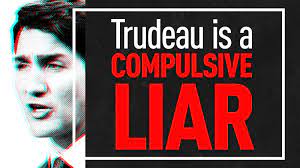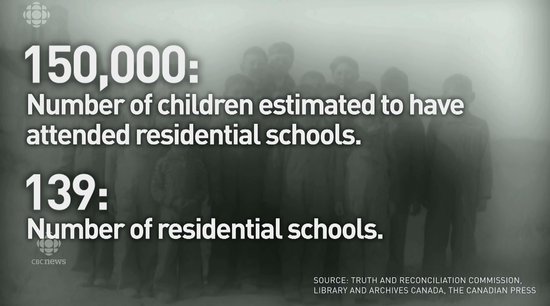In August, 2017, Prime Minister Justin Trudeau surprised almost everyone by announcing that the Department of Indigenous and Northern Affairs Canada (INAC) was not only being dismantled,
but was to be replaced with two new departments: Crown-Indigenous Relations and Northern Affairs, and Indigenous Services. As the days passed, it became clear that among those surprised by the news were national Indigenous organizations such as the Assembly of First Nations and the National Women's Association of Canada, elected band councils (who need INAC to approve everything they do before they can actually do it), traditional councils (who have yet to be acknowledged by Canada), even members of Health Canada and other departments whose funding and organizational makeup will be directly affected.
Basically, everyone who should have known that this was coming was completely caught off guard.
Even more ridiculous, they announced this decision while condemning the "colonial, paternalistic" nature of INAC and the Indian Act – as if deciding what was best for us without asking our input wasn't reenacting the same colonial, paternalistic attitude displayed by the decades of government that preceded them.
Many of the Liberal government's supposedly momentous announcements seem to be little more than repackaged versions of old policies. On Dec. 6, Indigenous Services Minister Jane Philpott announced that First Nations with solid financial track records are now eligible for guaranteed 10-year funding – a move this newspaper celebrated in a recent editorial. This announcement essentially admits the status quo for First Nations communities under the Indian Act has been hundreds of years of insecure and unstable funding. How can a community plan for the future when it never knows if it's getting the meagre resources Canada has promised? Is it any surprise, then, that one-quarter of First Nations have become so indebted they've been put under third-party management? Or that many communities cannot get off third-party management once they're there? After all, these organizations – which Canada forces First Nations to hire without offering any additional funding to pay for their services – do not have to report to Canada on their progress. This gives them no incentive to get communities out of debt and makes them unaccountable to the very communities Canada forces to pay their salaries. By ignoring these realities, Ms. Philpott implies that only good, financially responsible communities deserve even the possibility of stable and guaranteed funding, furthering the "corrupt Indian chief" stereotype Stephen Harper trotted out before her. This is not real change. This is stasis, rebranded as revolution.
When the INAC split was announced, Mik'maq lawyer, activist and politician Pam Palmater wondered in a CBC interview if the move "isn't more superficiality and less substance," noting "there seems to be a lot of name changes and terminology changes and announcements out of this government." I would be remiss if I didn't mention that name changes and department restructuring have a long history with INAC, probably because it's such an easy, superficial way to signal change where none actually exists. Before Canadian Confederation, the department was originally known as the British Indian Department. Then, when Indians officially became Canada's problem, it was called "Indian Affairs." Between 1860-1966, Indian Affairs was made the responsibility of the snappily named "Crown Lands Department Commissions Responsible for Indian Affairs," followed by the equally snappy "Secretary of State for the Provinces Responsible for Indian Affairs." Various other ministers had Indian Affairs stuffed into their portfolio during that time, including the Minister of the Interior and – if one can believe it – the Minister of Citizenship and Immigration. The Department of Indian Affairs and Northern Development wasn't even its own department until 1966. In 2011, the department began referring to itself as "Aboriginal Affairs and Northern Development Canada," and, four years later, thanks to Mr. Trudeau's symbol-loving Liberals, the name changed again to "Indigenous Affairs and Northern Development." Although Indian Affairs has had to report to numerous people and departments throughout its history, it certainly has never had to report to Indigenous people. That lack of accountability and responsibility has continued for more than 150 years, unchecked.
That's the problem, though: Canada's attitude towards Indigenous people has never changed. In the eighties – the same time Prime Minister Pierre Trudeau was enshrining "multiculturalism" in the Constitution – Indigenous activists had to fight tooth-and-nail for their voices to be heard. Their hard work eventually prevailed, though, and Canada agreed to include Section 35 in the Constitution, legally enshrining recognition and affirmation of Indigenous rights. Although this has been part of the national Constitution for 35 years, it has not been seriously acted upon by Canada. There have been no moves to change the Indian Act in a way that reflects the Indigenous right to both self-government and self-determination entrenched in Section 35. No moves to right the disproportionate way that Canada has grossly underfunded Indigenous nations while making billions of dollars exploiting their land and resources, ignoring treaties or, in the case of the entire province of British Columbia, ignoring the astounding lack of treaties. There has only recently been acknowledgment of how, despite public apologies and Gord Downie-branded "Reconciliation Rooms" at steakhouses, Canada continues the policies of residential schools today, with Child and Family Services taking more Indigenous children from their families than attended residential schools when they were at their height.
All of these things are done without consulting us, without asking for our consent. Despite Mr. Trudeau's claims to want to stop the paternalism, Canada's approach to Indigenous people has always been akin to that of a paternal head of house in a fifties sitcom: Father knows best.
The recent penchant for symbolic change can only be viewed as superficial. This is the undiscussed problem with "political correctness": complying with the rather small request to change terminology has been used to shield racist institutions from harsh, necessary criticisms. By making shallow "politically correct" changes – for example, going from "Indian Affairs" to "Aboriginal Affairs," or "Aboriginal Affairs" to "Indigenous Affairs" – these institutions appear as though they are making real change.
But if their structure, attitudes and policies don't reflect that desire, then what good is their political correctness?
If you're refusing to let my community enact our inherent right to self-determination and self-government, while intentionally underfunding the services we rely on to survive, it hardly matters if you call us "Indians" or "Indigenous peoples." We know what you mean.
BLOG COMMENTS POWERED BY DISQUS



